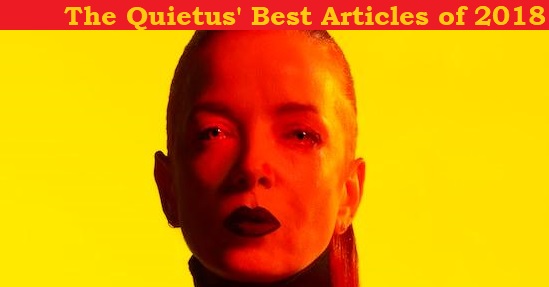In her Baker’s Dozen choices, Manson takes us on a journey through the music that shaped her adolescence in Edinburgh – music which spans a range of diverse genres, styles and cultures, from punk to reggae, shoegaze to rock. Central to her choices was a group of unwavering female identifying artists who, she tells me, taught her fearlessness both in artistic expression and style – artists, she believes, who are still leading the way for women in the music industry today.
"Longevity is key. The reason we’re still talking about Patti Smith, Marianne Faithful and Siouxsie Sioux is because not only did they create great work, but they hung around long enough that they could not be eradicated from the male, patriarchal narrative…when you base your entire career around the objectification of self and sexualisation of self, you can pretty much guarantee that you won’t have longevity. Sexual agency diminishes so fast for all of us that if you gamble your entire career in that alone then you’re doing yourself a disservice and you’re doing women behind you a disservice."
"I think a whole new generation of young women are savvy to this now and way more well-armed than my generation ever was… every human has a responsibility to try and change the lack of representation of women in our culture. I feel like things continue to slowly evolve but for my taste, I would much rather things changed faster. But there are more women entering into music production, into song-writing and enjoying longer careers. The more and more women who manage to last the course, the better for all women in the future."
Patti Smith, Elizabeth Frazer, Siouxsie Sioux and Sinéad O’Connor are just some of the role models Manson discusses, from early musical discoveries in clubs in and around Edinburgh, to later sharing the stage with some of her heroines as a member of Garbage. One of the issues that still grates, she says, is how so many females are sidelined as headline acts.
"I think I have great hope that we will continue to push and force representation but my advice to young women is simple: if you don’t see yourself represented anywhere, if you don’t see women artists in festival line-ups, stop going to them. Stop giving them your money. There’s a patriarchal system in place that needs to be immediately eradicated but it doesn’t seem like we’re getting too much help from the patriarchal power that’s in position currently. But that will change and we’ll remember who were are allies and who were not."
Manson also talks passionately about the influences of bands from Scotland and the regions as she discusses the music of The Associates, The Cocteau Twins and more. Manson begins her choices with those regions, specifically Manchester, as she describes the life-changing experience of hearing The Stone Roses for the first time.
Garbage’s Version 2.0 will be reissued later this month and the band tour throughout 2018. Click the image of Shirley Manson below to begin reading the Baker’s Dozen


